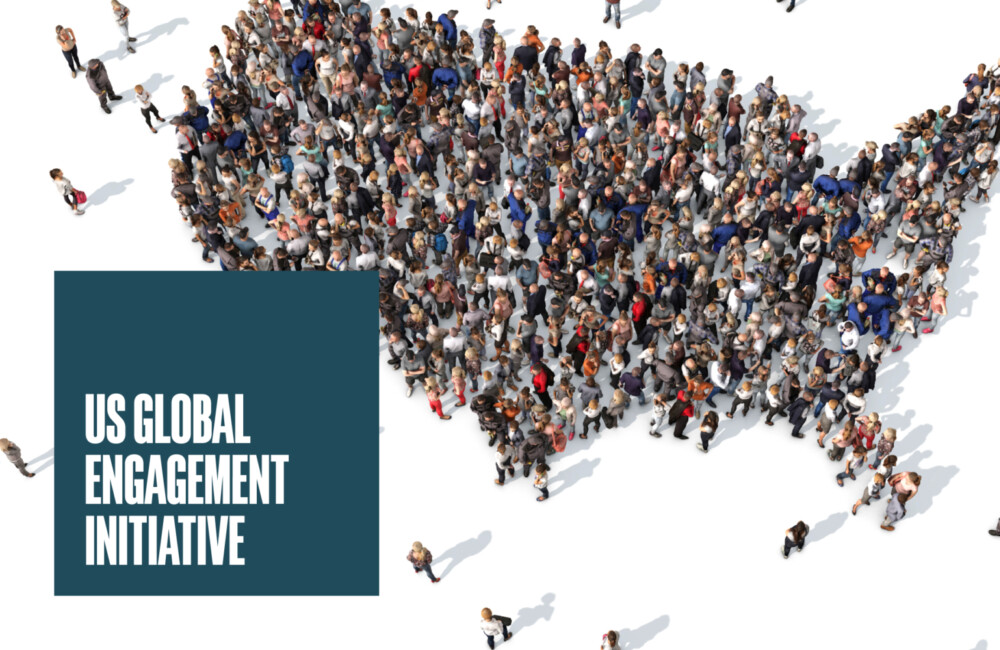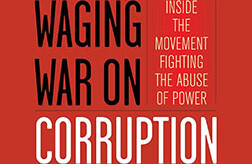Framing ethical perspectives
Multilateralism refers to a group of nations working together for a common goal. It is at the heart of international relations as nation-states form alliances with like-minded countries to take on global issues, such as climate, emerging technology, inequality, and collective security. Carnegie Council sees multilateralism as essential to generating solutions to global problems and a critical component of an ethical present and future.
Featured Multilateralism Resources
Inclusivity, AI & climate governance, and more
FEB 27, 2024 • Video
A Carnegie Council Conversation with the UK Home Secretary
MAR 28, 2024 • Video
Unlocking Cooperation: The Global South and Global North
In the inaugural panel of the "Unlocking Cooperation" series, Ramu Damodaran leads a discussion on forging a path forward for Global South/North collaboration.
OCT 18, 2023 • Video
Unlocking Cooperation: A Global Ethics Day Special Event
In this keynote event for Global Ethics Day 2023, Carnegie Council President Joel Rosenthal led a conversation on the psychology behind cooperation; ways that states, institutions, ...
Subscribe to the Carnegie Ethics Newsletter for more on ethics and international affairs
Related Initiatives
Model International Mobility Convention
The primary goal of the Model International Mobility Convention (MIMC) is to formulate new rules for migration and asylum that can benefit both migrants and refugees as well as their states of origin, transit, and destination.
Carnegie Ethics Accelerator
The Carnegie Ethics Accelerator is a new kind of incubator designed to empower ethics in the face of swiftly evolving challenges in technology and public policies.
Explore Our Multilateralism Resources

NOV 26, 2012 • Article
Ethics, International Relations, and Global Environmental Governance
Lorraine Elliott's recent lecture in Singapore drew on more than a decade of work to canvass ways in which we might understand--and indeed make sense ...
NOV 26, 2012 • Podcast
Global Ethics Corner: Is It Too Soon to Normalize Relations with Burma?
As Burma begins to reform its government, the U.S. has been quick to begin normalizing relations with the Asian state. Are geostrategic considerations overshadowing ...

NOV 6, 2012 • Article
The New Assassination Bureau: On the 'Robotic Turn' in Contemporary War
When the film "2001" first came out, the plot--in which a robot faces an ethical decision--seemed like pure science fiction. Today it's becoming reality. This essay ...
OCT 27, 2012 • Podcast
Exit the Colonel: The Hidden History of the Libyan Revolution
The real story of the Libyan Revolution began not with the Arab Spring, but in 2003, when anti-Qaddafi sanctions were lifted. Former U.S. diplomat Ethan ...
OCT 24, 2012 • Podcast
Why and How the Euro Zone Crisis Will Be Solved
Danish economist Jacob Funk Kirkegaard offers a contrarian take on the euro zone crisis. While he notes that there are political problems within the European ...

OCT 23, 2012 • Podcast
Syria: The Fall of the House of Assad
David W. Lesch has traveled to Syria repeatedly since 1989 and met President Bashar al-Assad several times in the mid-2000s. He discusses the conflict in ...
OCT 16, 2012 • Podcast
Public Affairs: America in the 21st Century: A View from Asia
The good, the bad, and the ugly: distinguished Singaporean Kishore Mahbubani politely but firmly tells Americans how Asians see them, and warns, "the world that ...

OCT 12, 2012 • Podcast
Senator Richard Lugar on Nuclear Weapons Reduction
Senator Lugar tells the dramatic story of his bipartisan work on the Cooperative Threat Reduction Program (also known as Nunn–Lugar), which provides funding and ...

OCT 10, 2012 • Podcast
Frank Vogl on Corruption
Corruption is not a victimless crime, as many believe. Transparency International's Frank Vogl discusses the global, grass-roots fight against this age-old problem.

OCT 5, 2012 • Podcast
Is the World Becoming More Peaceful?
In this vigorous discussion, two leading thinkers in global affairs--Harvard professor Steven Pinker and "Atlantic" correspondent Robert D. Kaplan--take on the subject of world peace, ...




